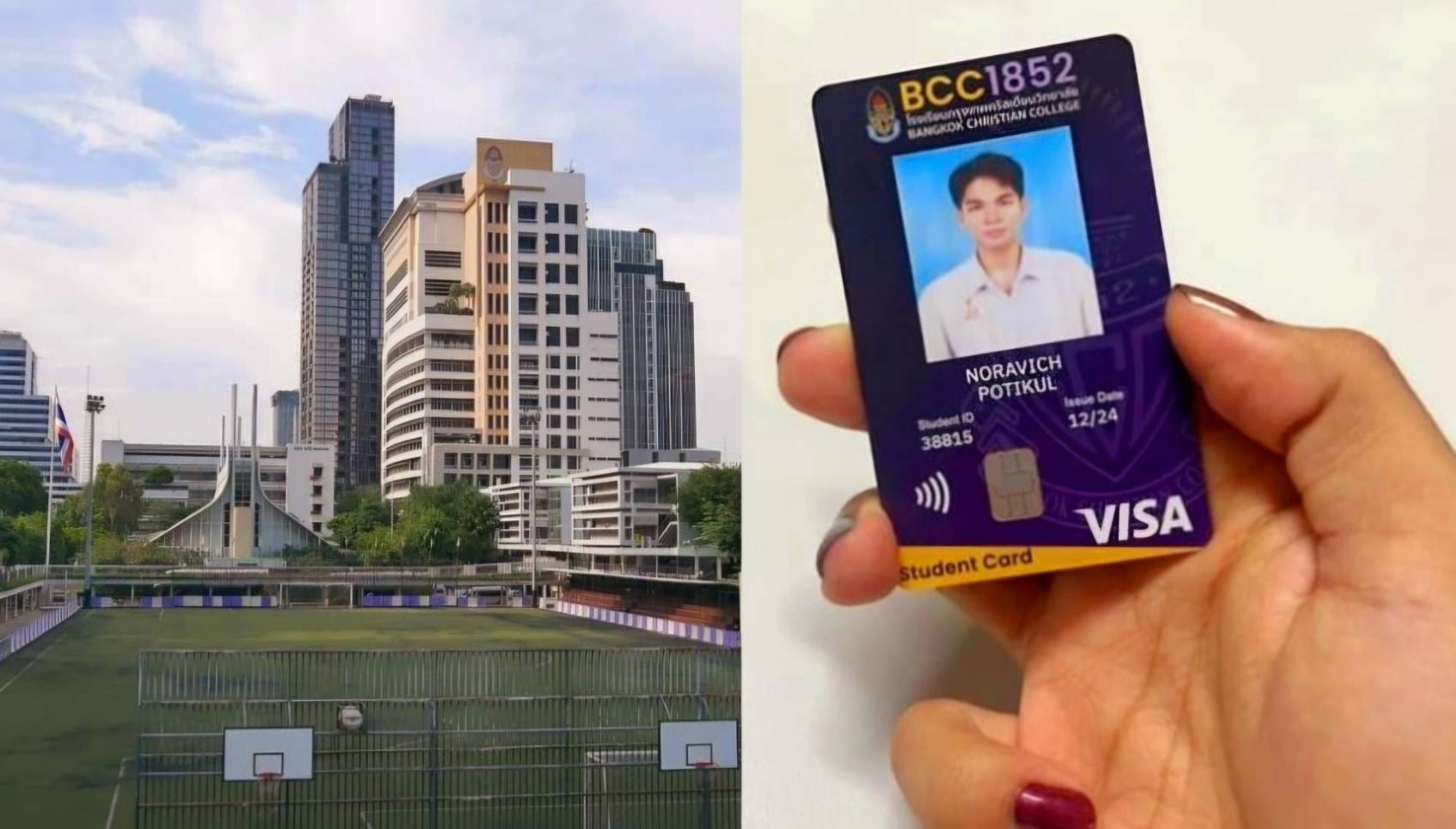Bangkok Christian College (BCC) has launched Thailand’s first AI-powered student ID card, incorporating artificial intelligence (AI) and data analytics to support students in personal development, financial literacy, and career planning.
The initiative, introduced on March 10, is described by school officials as a step toward modernizing education, though it also came amid growing global discussions on AI ethics, including concerns raised by Pope Francis and the Vatican.
AI in education
BCC officials said the student ID card, which they claim is the first of its kind in Thailand, offers students more than basic identification.
“This is more than an ID—it is a personal assistant, financial guide, and career development tool, all in one,” said Mr. Wichai Seesut, Deputy Director of Bangkok Christian College.
According to Seesut, the card integrates Generative AI and Data Analytics as part of what the school describes as a “seamless learning” approach.
The card provides real-time financial tracking, aims to promote responsible spending, and includes features designed to develop financial literacy.
It also monitors eating habits and analyzes nutrition using Bioelectrical Impedance Analysis (BIA) technology.
The system tracks students’ participation in extracurricular activities, with data used to assess individual strengths, interests, and potential career paths, beginning at the primary school level.
Vatican’s ethical concerns on AI
As AI technology expands into education and other sectors, the Vatican has raised ethical concerns over its implications.
A Vatican document released two weeks ago provides guidelines for AI applications, cautioning against over-reliance on automated systems.
The document, which addresses AI use in fields ranging from warfare to healthcare, emphasized that AI should complement, not replace, human intelligence.
“The impact of AI’s uses in various sectors may not always be predictable from their inception,” the document said, underscoring the need for ethical oversight.
Pope Francis has also warned about the risks of AI, addressing world leaders at the World Economic Forum in Davos last month.
In a statement delivered by Cardinal Peter Turkson, the Pope said AI presents “critical concerns” for humanity’s future and could contribute to a “crisis of truth.”
“This technology is designed to learn and make certain choices autonomously, adapting to new situations and providing answers not foreseen by its programmers, thus raising fundamental questions about ethical responsibility, human safety, and the broader implications of these developments for society,” he said.
He urged governments and businesses to approach AI development with “due diligence and vigilance” to prevent ethical compromises.
Regulatory approval and implementation
The BCC AI-powered student card was developed over three years by the school’s Education Policy and Innovation Division and has received official approval from the Bank of Thailand, according to school officials.
The card can be used for tapping to pay for meals in the cafeteria, borrowing books from the library, and checking in to extracurricular activities.
The school said that every transaction generates real-time data, allowing administrators and parents to monitor student development and ensure that AI is used responsibly, in line with ethical guidelines.
AI-Driven career planning
As part of BCC’s Self-Discovery Program, the AI system tracks students’ behaviors over time to help identify career paths based on their skills, interests, and activity history.
School officials said this approach goes beyond traditional methods such as fingerprint analysis, providing what they describe as a personalized career roadmap.
“At Bangkok Christian College, we don’t just teach academics—we instill Christian values, respect, and responsibility,” Seesut said.
“Technology should serve humanity, not replace its essence. We are not just preparing students for the future. We are building that future for them—ethically and responsibly,” he added.







